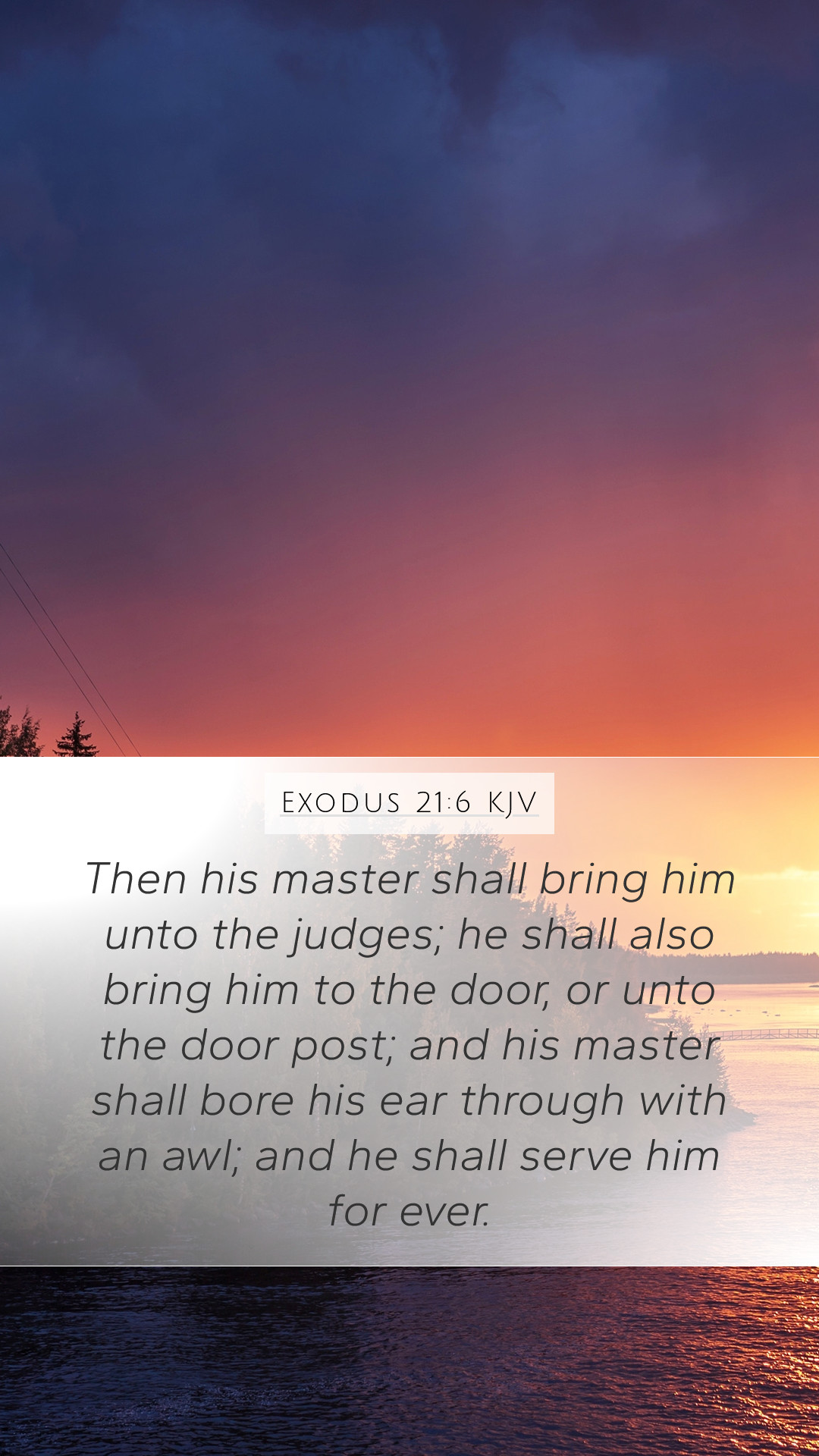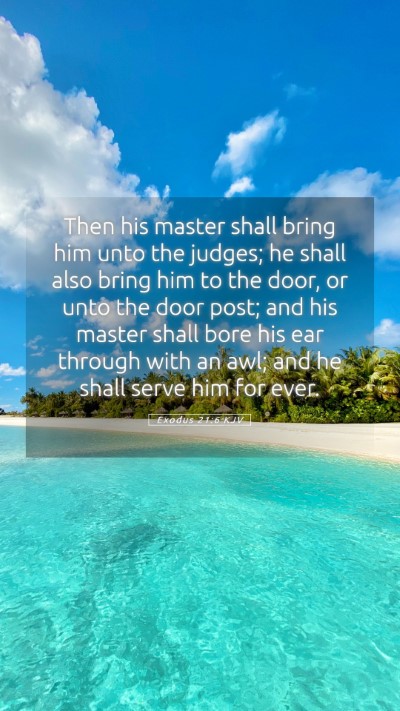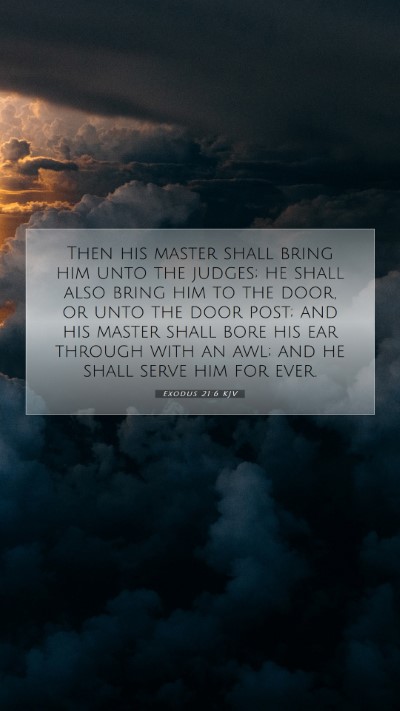Exodus 21:6 - Understanding the Biblical Context
The verse Exodus 21:6 states:
"Then his master shall bring him to the judges; he shall also bring him to the door, or to the doorpost; and his master shall pierce his ear with an awl; and he shall serve him forever."
Meaning of Exodus 21:6
Exodus 21:6 deals with the concept of voluntary servitude within the Hebrew culture. Here, we see that a servant, who has served his master for a period of six years, can choose to remain in service for life if he loves his master and is willing to commit to a lifetime of servitude.
Biblical Commentary Insights
- Matthew Henry:
Henry emphasizes that the act of piercing the ear signifies a solemn commitment. The ear, being the primary organ of hearing, symbolizes obedience to the commands of the master. This act represents a deep bond formed between the servant and the master, highlighting the personal choice of the servant to continue in companionship rather than being free.
- Albert Barnes:
Barnes notes that this law illustrates the importance of legal stipulations in Israelite society. The piercing of the ear is not mere physical injury; it's a ritual act signifying that the servant has chosen to accept voluntary service permanently, showing that love and loyalty are governing principles in this societal structure.
- Adam Clarke:
Clarke interprets the piercing of the ear as a mark of ownership and a sign of the covenant between the servant and the master. This act also indicates that even in servitude, one can enjoy a relationship of mutual respect and affection. The long-term service signifies trust and loyalty, which can lead to prosperity for both parties involved.
Theology and Social Implications
This verse highlights the theological and social implications of servitude in ancient Israel. It raises questions about freedom, choice, and the nature of service:
- Voluntary vs. Involuntary Servitude: The servant’s choice reflects deeper theological themes such as love and allegiance.
- Covenantal Relationships: The master-servant relationship can symbolize God's covenant with His people, underscoring themes of loyalty and commitment.
- Conditions of Service: Unlike slavery, which is often imposed, this servitude is marked by affection and loyalty—a reflection of the relationship between God and humanity.
Application for Today
In modern contexts, Exodus 21:6 can inspire reflection on personal commitments in various relationships, such as familial ties, friendships, and professional loyalty. It prompts individuals to consider what it means to dedicate oneself to another not out of obligation, but out of love and respect.
Cross References
- Leviticus 25:39-41 - Discusses the laws regarding Hebrew servants.
- Deuteronomy 15:12-17 - Expands on the laws of servitude and the potential for lifelong service.
- 1 Corinthians 7:21-23 - Talks about being a servant and applying the principles of freedom in Christ.
Conclusion
Exodus 21:6 serves as a powerful verse illustrating the depth of human relationships forged through voluntary commitment. This deeper analysis provides a roadmap for understanding servitude from a biblical perspective—highlighting love, loyalty, and the factors that shape our connections with others.


